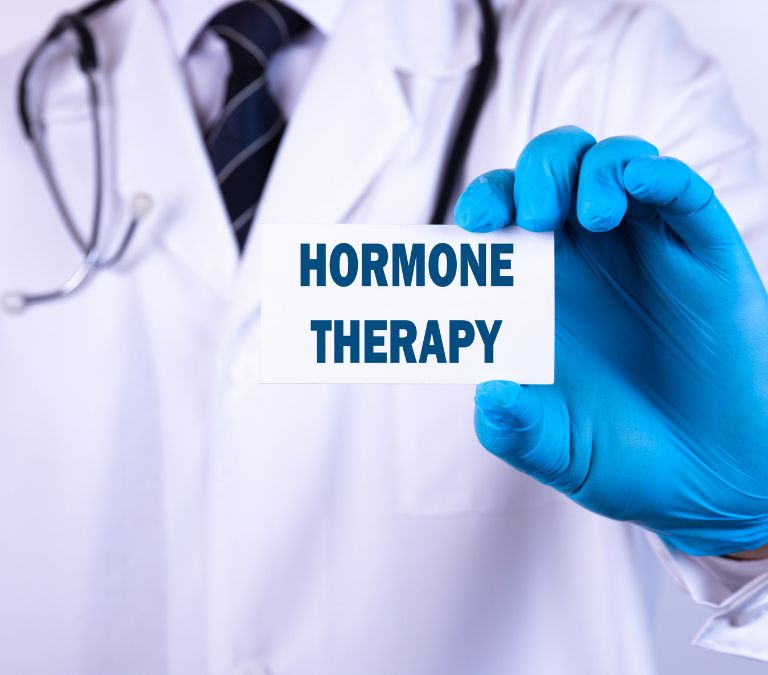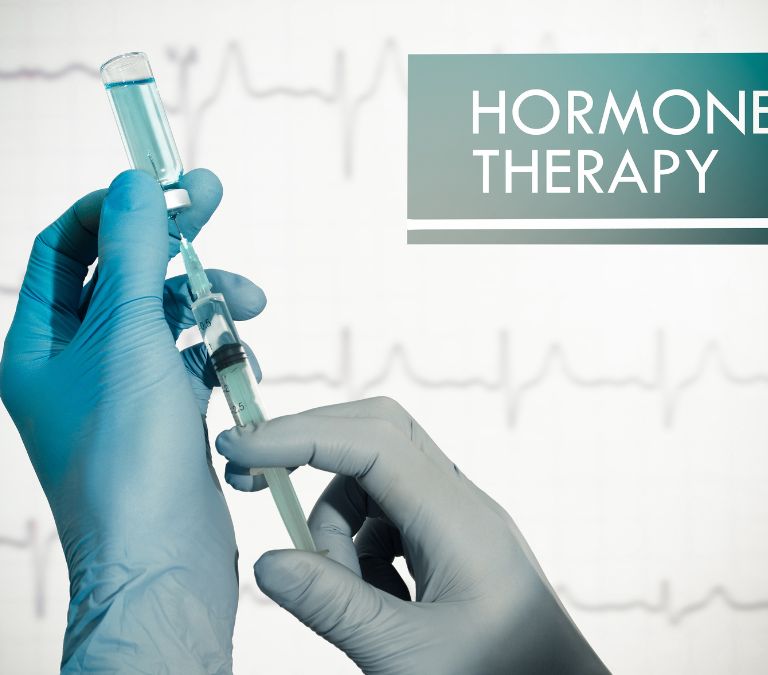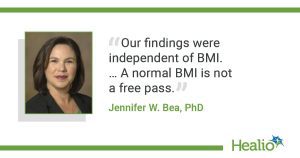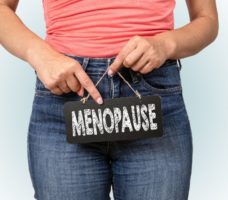Your body is a complex structure with many components working together to ensure optimal survival. Of these components, hormones help to coordinate specific functions and activities in the body. You can envision hormones as a conductor in an orchestra. In a standard orchestra, you find strings, keyboards, brass, woodwinds, and percussion.
When all these components come together to make music, the conductor is in charge of ensuring coordination, unison, and composure to deliver a perfect presentation. Without the conductor, everybody would play following their opinion, and it could lead to an absolute disaster.
In the body, the hormones are responsible for coordinating almost every bodily function, from controlling the heartbeat to mood, appetite, and libido. The body’s well-coordinated structure may collapse when the hormones become insufficient or decline. Unfortunately for menopausal women, hormone fluctuation is a characteristic feature of menopause.
During menopause, the body becomes unable to bear children. The cessation of the ovaries causes the inability to reproduce during menopause. Now, we all know that the ovaries are responsible for the production and secretion of eggs. Many menopausal women do not know that the ovaries are the main producers of important sex hormones like estrogen, progesterone, and testosterone. Menopausal women are also vulnerable to hormone fluctuations besides cessation in childbearing abilities.
The decline in the hormone levels introduces you to symptoms like hot flashes, night sweats, bloating, weight gain, cardiovascular diseases, vaginal dryness, sleep deprivation, fatigue, osteoporosis, eye dryness, memory loss, and certain cancers.
The exposure of women to these illnesses is why there are more women in hospitals than men. The hormone levels need balancing first to resolve these symptoms. With the need to regulate hormone levels in the body, hormone therapy has become very popular. One form of hormone therapy that has taken a quite different approach to hormone regulation is Bioidentical Hormone Replacement Therapy (BHRT).
What is Bioidentical Hormone Replacement Therapy (BHRT)?

Before we go into BHRT, we must understand what bioidentical hormones are. In your body, your endocrine glands are in charge of producing and secreting hormones into the blood. The body strives with fluctuating hormones when the hormones get out of balance. Bioidentical hormones come into play here.
Bioidentical hormones are artificial hormones that resemble the hormones secreted by the endocrine glands. Today, there are several forms of hormones, but when it comes to the level of resemblance to the hormones in the body, bioidentical hormones are the best. Bioidentical hormones are made in the lab and, according to the FDA, are considered safe to use.
Radical hormones are usually prepared from plants and described by practitioners as natural hormones. The most commonly used bioidentical hormones include estrogen, progesterone, and testosterone.
Bioidentical hormone replacement therapy works by adding more to declining hormones to create a sort of balance in hormonal levels in the body. For example, artificial estrogen can be created in the lab and then taken into the body in cases of declining estrogen. This way, a balanced system is achieved. Both men and women use BHRT to treat problems caused by fluctuating hormones.
Taking Bioidentical Hormone Replacement Therapy for Menopause
As an alternative to conventional Hormone Replacement Therapy (HRT), bioidentical hormones can be taken by menopausal women to help balance hormone levels. Bioidentical hormone replacement therapy is believed to be as effective as conventional HRT in relieving several menopausal symptoms.
When Bioidentical Hormone Replacement Therapy is taken into the body, hormonal levels are balanced, and a drop in the severity of hot flashes, night sweats, and mood swings is observed. Studies have shown that women who take BHRT are less likely to have sleep issues and memory loss. They have also reported less vulnerability to cardiovascular diseases caused by weight gain.
In some women, bioidentical hormone replacement therapy has helped with vaginal dryness, a problem that makes sexual intercourse painful and fairly enjoyable. Other than helping to relieve the symptoms of menopause, BHRT may also help reduce your risks of developing diabetes and eye dryness.
Generally, conventional hormone therapy and bioidentical hormone therapy have similar effects. However, some research works have shown that bioidentical hormone therapy has the edge over conventional hormone therapy as regards being safer and less invasive.
Why Not Conventional Hormone Therapy?

Hormone therapy is the most effective treatment and management option for menopausal symptoms. Menopausal women who take hormone therapy have shown more success than menopausal women who adopt lifestyle changes as the primary means for alleviating their menopausal symptoms.
While conventional hormone therapy remains more popular and more accepted, it is important to know that the claims of bioidentical hormone therapy being safer than conventional hormone therapy are false and aren’t proven by the FDA. However, the individualized and bespoke structure of bioidentical hormones gives BHRT an edge over traditional hormones used in conventional hormone therapy.
Unlike traditional hormones, bioidentical hormones can be custom-made for you. It means you can receive hormone therapy to suit your hormonal needs; not a one-size-fits-all scheme. One big problem with the custom-made structure of BHRT is that tests carried out to determine individual hormonal needs are made using saliva as the main specimen. The saliva isn’t a good enough medium to get accurate results on hormone levels. Also, there is no evidence that the readings from the saliva are even related to your symptoms.
Marketers of bioidentical hormones will often argue that BHRT is safer, more individualized, more effective, and more accessible than standard HRT. None of these claims has been proven or supported by the FDA and other medical bodies. The risks associated with using conventional HRT are believed to be the same in BHRT.
Compounded Bioidentical Hormones
Compounded bioidentical hormones are blended/mixed hormones made to suit the hormonal needs of an individual. Since every physical body’s needs are different, it makes perfect sense to offer medication tailored to suit an individual’s specific needs.
Compounded bioidentical hormones with high estrogen and fairly high testosterone can be produced and administered for a woman with low estrogen but moderately low testosterone. Compounded hormones may sound like the best option, but risks are attached.
Risks of Compounded Bioidentical Hormones
A saliva sample is obtained to determine the levels of specific hormones in the body; this is where the conventional hormones are referred to as unsafe. The saliva can produce inaccurate results because the hormonal levels in the saliva don’t represent the actual hormonal levels of the body. Incorrect reading will lead to incorrect treatment, which could further jeopardize the health.
Secondly, compounded bioidentical hormones aren’t approved by the FDA, at least not yet. Compounded hormonal levels may contain certain hormones made with ingredients considered non-hormonal. These ingredients are not FDA-tested and, as such, not FDA-approved.
Many bioidentical hormones have gotten FDA approval, but the final blends haven’t. The research on the risks and benefits of conventional hormones has been quite unlimited, and as such, one cannot conclude the safety and effectiveness of these hormones.
General Risks of Bioidentical Hormone Therapy
No form of hormone therapy is risk-free. Even the bioidentical hormones believed to be safer still cause severe side effects in menopausal women. Since BHRT isn’t approved, the FDA hasn’t done enough research to determine just how effective it is. It means that BHRT could even be riskier than other forms of HRT.
While hormone therapy has frequently proven beneficial in helping women relieve menopausal symptoms, certain risk factors are still connected to this widely accepted treatment for menopause. Studies have shown that hormone therapy could cause problems as severe as incidental hypertension and cancer.
Long before the discovery of hormone therapy risks, many women adopted hormone therapy as their first treatment and management option for menopausal symptoms. Since discovering these risks, women have considered more treatment options for managing and treating menopausal symptoms.
A study on more than 40,000 menopausal women in Australia observed that hormone therapy could cause many menopausal women to come out with high blood pressure and other cardiovascular diseases. Further research suggested that long-term hormone therapy leads to higher risks of developing endometrial cancer, stroke, blood clots, breast cancer, dementia, and problems with the gallbladder.
Different women react differently to menopause. Some women go through smooth transitions while others go through tough transitions. Even the medications for menopausal symptoms we have today have varying levels of effectiveness in different women.
With this, it is extremely important to know that while hormone therapy could cause side effects in some women, it may just be your answer and solution to menopausal problems. Before taking any form of hormone therapy, you must speak to a doctor and have a comprehensive discussion on the cons, pros, and everything worth knowing about this medication.
Complementary Therapies
With more innovations in the medical industry, treatment and management options for menopause are in constant development, and even though scientific research has been relatively scarce, work is still being done. Hormone therapy is the most effective treatment and management option for menopausal symptoms.
In the United States, several alternative products are available in shops for treating symptoms of menopause. Today, herbal supplementation is gaining prominence, and with this, you’d find products like black cohosh, ginseng, primrose oil, angelica, and St John’s wort.
The effectiveness of these herbal supplements hasn’t been scientifically proven, but many women who took supplements like St John’s wort and black cohosh have reported decreased intensity/severity of hot flashes. Herbal supplementation has been very effective in many women today, but there hasn’t been enough scientific support to prove these claims.
Alternatives to Hormone Therapy
Usually, it is left to your doctor to decide if hormone therapy is good for you. Even with the effectiveness of hormone therapy, doctors still don’t recommend it for so many women. Recall that women with a history of underlying diseases like cardiovascular disease and breast cancer aren’t advised to go for hormone therapy. With this, certain alternatives have been made to help women who can’t take hormone therapy or whose bodies may not react positively to administering any hormone therapy.
Management options like lifestyle changes and diet options have proven to be effective enough in helping menopausal women go through a smooth transition into menopause.
Exercises and Physical Activities

Studies have shown that menopausal women who engage in active physical exercises are less likely to develop severe symptoms and are more likely to experience a smooth transition through perimenopause into postmenopause. Weight gain is one of the major dangers of menopause.
During menopause, gaining weight is easier. When you gain weight during menopause, you are exposed to other problems like cardiovascular diseases and high blood sugar. These problems may further make menopause excruciating for you. Here are some of the most effective exercises for menopausal women during menopause.
You can effectively manage more than 50 percent of menopausal symptoms by engaging in active physical activities. Menopausal women who spend most of their time sedentary are usually more vulnerable to developing severe menopausal symptoms.
For this reason, most menopausal women who frequently experience severe symptoms of menopause are women who do not engage in exercise and other physical activities. You don’t have to be an athlete overnight; you can try to stay more active during the day and limit activities that will make you idle. While this may be difficult, you should remember that menopause makes you more vulnerable to diseases, and exercises reduce this vulnerability.
Diet Options
You should limit foods with high fat content. Reduce highly spicy and sugary foods. Consume less coffee and caffeinated products and completely stop alcohol and tobacco products.
Menopausal women are advised to consume more fruits and vegetables because they contain important vitamins, minerals, and antioxidants. Eating more fruits and vegetables could help relieve hot flashes and make you less likely to develop cardiovascular diseases. Fruits and veggies are also high in vitamin D and calcium, two nutrients necessary for the growth and development of strong bones. With this, the risk of developing osteoporosis is greatly reduced.
It is also important to avoid trigger foods. Trigger foods are foods that provoke out-of-control eating. Trigger foods make you lose control to the point where you end up eating more than you should. For example, you can open a bag of popcorn and be provoked to eat all the popcorn in the bag.
Most trigger foods are high in calories and are often very sweet. As menopausal women, we can help our body say on course for managing menopausal symptoms by staying away from trigger foods. Intentionally avoiding trigger foods could help you with problems like weight gain, high blood sugar, and even hot flashes.
The food we eat can affect the way our body reacts to menopause. Some foods are capable of alleviating menopausal symptoms while others can aggravate them. Menopausal women are advised to be very cautious of their diet to go through a smooth transition into menopause.
FAQs on BHRT for Menopause
Is identical Hormone Replacement Therapy safe after menopause?
In most cases, the most severe menopausal symptoms are experienced during perimenopause. As you go further in age, hormonal fluctuations reduce, and the symptoms die down or reduce in severity. However, some women still experience persistent vasomotor symptoms like hot flashes and night sweats, even during postmenopause. Studies have shown that women in postmenopause can still take hormone therapy, especially for cases of persistent symptoms.
The safety of BHRT after menopause is very dependent on the physiology of the patient. Earlier in this article, we discussed how different women react differently to menopause. Extensive use of bioidentical hormone replacement therapy after menopause is considered safe, but side effects could be imminent. Regardless, seeing your doctor is paramount.
What Is the average cost of bioidentical hormones?
The cost of bioidentical hormones varies. Four factors play very important roles in determining cost and general pricing. These factors include medical services, the cost of vitamins and supplements, medication costs, bodywork, and lab work. The cost and complexity of these factors will determine how expensive bioidentical hormone replacement therapy will be.
The average cost in the United States ranges from $31 to $85 per month for the bioidentical hormone. BHRT is a process that could take a long time to get optimal results. For this reason, you could spend up to $124 to $425 for four months.
The administration of bioidentical hormones could vary depending on the body’s receptiveness to the treatment. While bioidentical hormone therapy may sound pricey, it becomes very reasonable when we analyze the cost of other medications and the cost of managing the entire phase of menopause.
Can you get bioidentical hormones over the counter?
Yes, you can get bioidentical hormones over the counter. The accessibility of bioidentical hormones is mind-blowing. You can buy them in stores and even online. While purchasing bioidentical hormones, it is important to ensure you buy from a qualified or reputable health practitioner.
Even with tight regulations by the US against unqualified people posing as doctors, some people still succeed in deceiving patients that they are real doctors. So many women die every year from trusting fake doctors. Before taking them into your body, you should confirm that purchased bioidentical hormones are original and safe.
How is BHRT administered?
Bioidentical hormones are taken in different forms. These include pills, gels, pellets, patches, creams, and shots. While all the forms are believed to cause similar effects, finding the best one for you could still be daunting. Usually, your doctor or healthcare provider will decide the form of administration best for you.
How long does it take for BHRT to start working?
The period it takes to get the slightest effects varies largely. Since different women react differently to menopause, it can be difficult to determine the exact time it takes. However, most cases of BHRT take roughly three to four months to get optimal results. Some women may take a few days to get the slightest differences. In other women, the slightest effects of BHRT could be observed for as long as after a month.
Are all menopausal women qualified for BHRT?
No, not all menopausal women are qualified for any form of hormone therapy. Since your doctor carries out hormone therapy, your decision to embark on this procedure will most often involve you and your doctor/healthcare provider.
Generally, menopausal women with underlying diseases or a history of diseases like breast cancer, cardiovascular disease, and blood clot disorder are not advised to go for hormone therapy. Going for hormone therapy, according to research, will most likely trigger the recurrence of these diseases.
Seeing a Doctor
Before adopting any management or treatment option for menopause, you must speak to a doctor. Even if you opt for lifestyle and diet options, an appointment with a doctor will go a long way to get optimal satisfaction in your menopausal journey.
Conclusion
There are more women in menopause now than ever before. With the rising number of menopausal women comes more treatment for menopausal symptoms. While more options for treatment and management of menopausal options are now available, seeking your doctor’s advice is paramount.
Menopause is not a one-size-fits-all scheme, and the same applies to treatment. Hormone therapy may be the best option for you and not for your next-door neighbor. Since all women do not react the same way to menopause, knowing what is right for you is very important.
Bioidentical hormones are the closest replica of the natural hormones of the body. It makes them unique and distinct from other artificial hormones in medical stores. However, BHRT is not a miracle drug and, as such, shouldn’t be taken without proper consultations with a qualified medical practitioner.
Menopause is not a disease; it is a natural phase every woman must undergo. For this reason, menopausal women are advised not to see menopause as the body’s way of communicating retirement. Instead, you should see menopause as a new phase of life to explore new possibilities.








